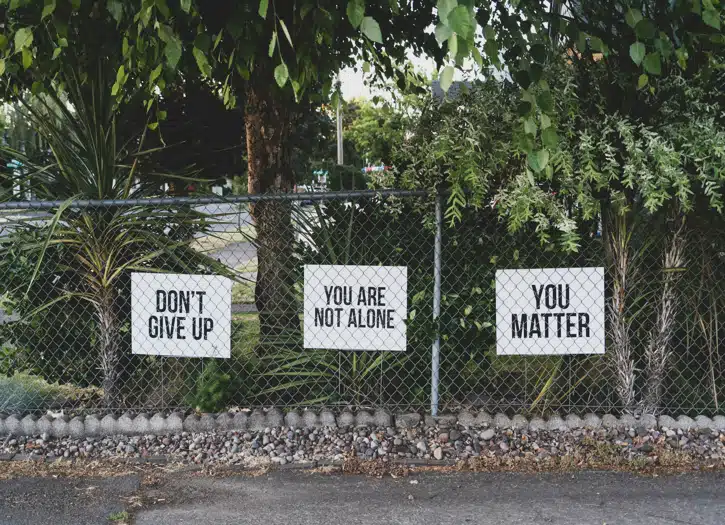
I love contraception. I love the concept of birth control. I love the control it gives you over your own body. I love that it can make menstrual cycles less painful and easier to manage. But I don’t love the effect contraception can have on your mental health.
When you are discussing your contraceptive options with a doctor, they will go through common side effects, particularly for those that have hormones.
On the pill (both combined and mini), you can get headaches, irregular vaginal bleeding and sore breasts. With the implanon, you can have bloating and changes to your skin. The (hormonal) IUD also sees these common side effects: headaches, sore breasts and changes to your skin. It is the same with a vaginal ring (NuvaRing) and the contraceptive injection (Depo) (Ref.)
The side effect that is shared through all of these options is mood swings (Ref).
Healthcare professionals do warn you that these side effects differ from person to person, and include mood swings. Not everyone will experience the negative effects of their contraception, it’s just a possibility that occurs for some people.
With the exception of barrier methods and copper IUDs, contraceptives have hormones in them. Each has different levels of hormones. For example, the pill has both oestrogen and progestogen, compared to the hormonal IUD that only has progestogen (Ref) The IUD also has a lower overall amount of hormones as it is localised to the area it needs to work in, whereas the pill has more as it has to travel through the body to get to where it is needed.
Adding more hormones to your system could throw anyone off. You are disrupting the hormone balance in your body in attempts to alter your cycle or change the environment of your uterus. Now this change in balance isn’t supposed to affect your system forever, your body will get into a rhythm again. Everything in your body begins to settle. Well, everything should settle.
For me, the pill took a massive toll on my mental health. A week after being on it, it was like a dark cloud had settled on my head and made me sadder and angrier than I had ever felt. With new contraception, you have to give your body time to adjust to the new hormones. I knew this and was ready to patiently wait out the 3-month adjustment period my doctor had warned me about. I waited and I waited but my mood never got better. In fact, it got worse.
I don’t want people to think that my experience is universal. Some people go through different contraceptives in their life and never have it affect their mental health. I don’t want people to be put off hormonal contraception, it truly is great.
It’s just that not all hormonal contraceptives will have the same effect on your body, and what works for one person may not work for another. I just want to highlight the impact that it can have on one’s mood.
It is quite often that studies on contraception avoid or downplay the association between contraception and mental health. There is evidence that hormonal contraception can increase an individual’s risk of depression, suicide and mood disturbance (Ref.). Knowing this doesn’t really stop people from using birth control. It can be something that can help inform what type they choose, or a concern they flag to a doctor. However, people still need contraception, so it ends up being just another rare side effect that we hope doesn’t affect us.
I decided to switch to the implanon. About 2 or so weeks after I stopped taking the pill, it was like I could feel the dark cloud dissipate. 4 months with the implanon and the dark cloud has not returned. Luckily, the switch was a good decision for me.
For some there is a need to be on contraception, such as to control one’s cycle or hormones, for their physical wellbeing. So, some people do not have the option to stop hormonal contraception.
For those that can take a break, after consulting with a healthcare professional, here are some of the non hormonal contraceptive options out there for you.
Firstly, there are barrier methods: diaphragms and condoms (Ref). Condoms are always great to use because they protect against sexually transmissible infections (STIs). Just be careful of expiry dates and latex allergies.
There is the copper IUD, which uses copper to change the lining of the uterus to stop egg fertilisation (Ref).
There is also natural family planning. This is where you avoid sex in the time of the month you are most fertile (Ref). Note: this is not “the rhythm method”, this is different. There are apps out there, like Clue, that you can use to track and map out your cycle, showing you when you are most fertile.
Each person has different preferences when it comes to contraception. At the end of the day, it is up to you (in consultation with a healthcare professional) what you chose. But you should know, it is okay to stop using hormonal contraception for your mental health. Your mood is a part of your health and you should prioritise it as well as your physical health.
Finding the right contraception for you can be a long and draining journey. It is not always easy. So, it’s okay to take a break. There are other options to use in the meantime. Let your mind and body rest.
Photo by Dan Meyers on Unsplash